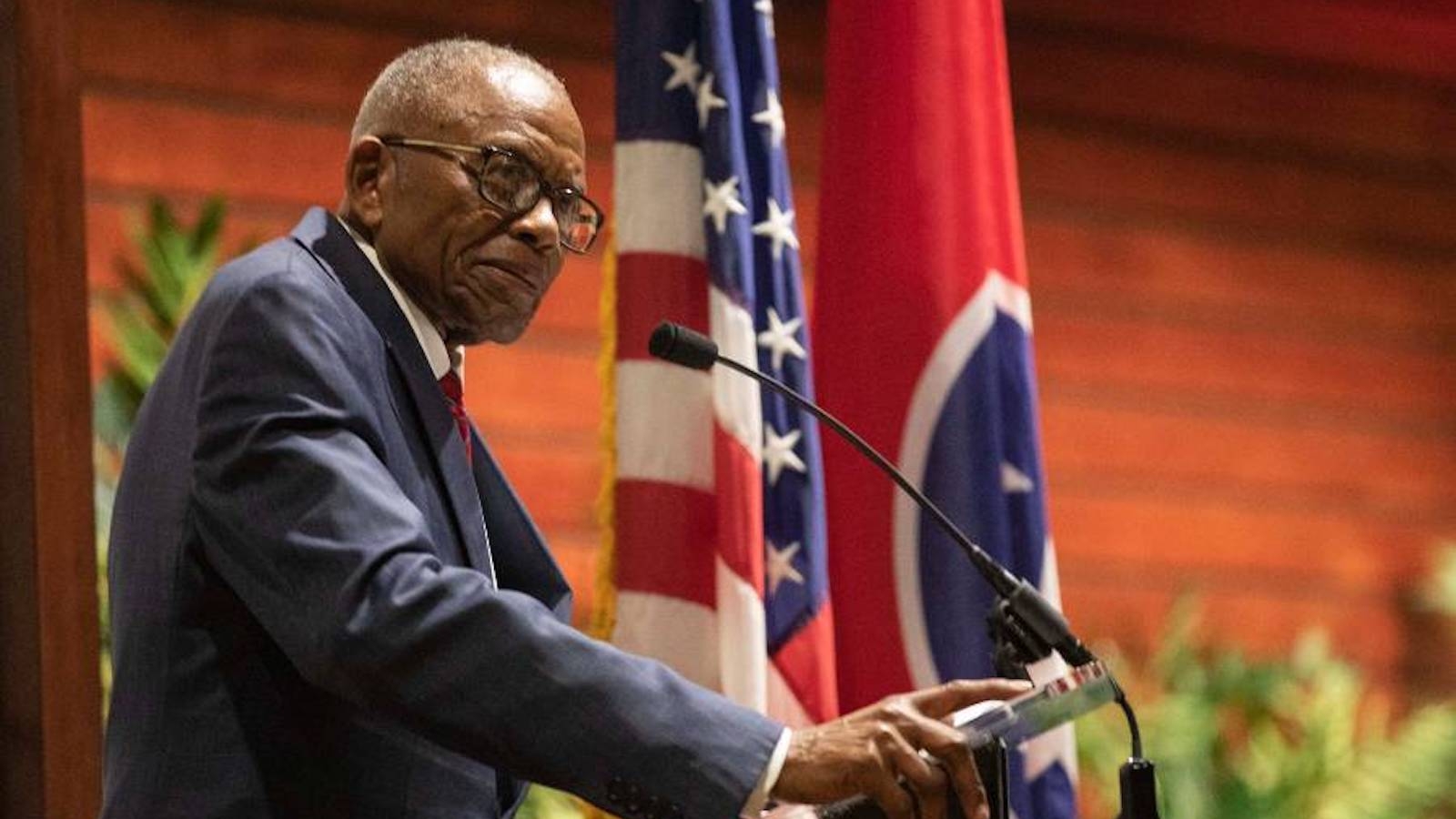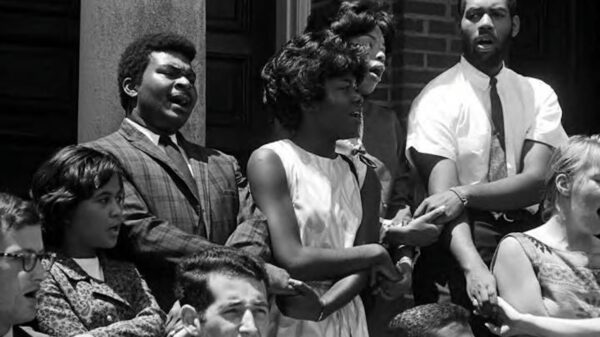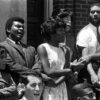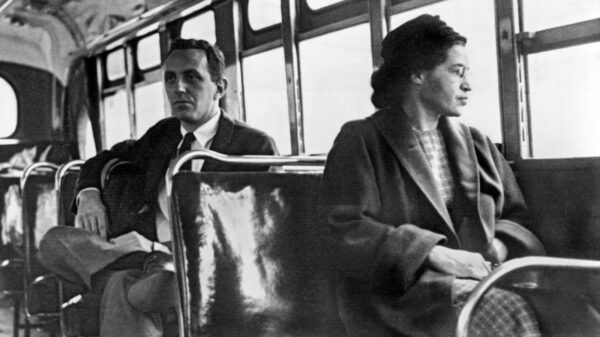When he left his Montgomery home for college, Fred Gray said his goal – one he felt was important enough to give up on his mother’s dream of him becoming a preacher – was to destroy through the legal system “everything that was segregated.”
On Friday at the White House, President Joe Biden will award Gray with the Presidential Medal of Freedom for spending his life achieving that goal.
“From the very beginning, I’ve known that there is no one more deserving of our nation’s highest civilian honor than Attorney Gray, whose trailblazing work helped end segregation and advance a more equitable future,” said Rep. Terri Sewell, who nominated Gray for the award. “Attorney Gray is one of the most consequential civil rights lawyers of our time.”
Gray is very likely the most consequential attorney for the Civil Rights Movement.
He worked with Rosa Parks, E.D. Nixon and Jo Ann Robinson to plan, coordinate and carry out the Montgomery Bus Boycott. He defended both Parks and Claudette Colvin, who was arrested prior to Parks for refusing to give up her seat on a Montgomery bus. And he did all of that in his first year out of law school.
Gray served as Rev. Martin Luther King Jr.’s attorney, once winning King’s acquittal on tax evasion charges from an all-white, Alabama jury in 1961.
It was Gray’s legal work that allowed Vivian Malone and James Hood to enter the University of Alabama, despite Gov. George Wallace standing in the school’s doorway. And Gray also led the cases that desegregated UNA, Auburn University and all of Alabama’s public schools.
Gray defended the NAACP in five different court cases in Alabama, securing the organization’s right to operate in the state. And he later secured their rights to organize.
And somehow, that’s not all.
Gray also argued the case against Wallace that led to the Selma-to-Montgomery March – the most influential protest in civil rights history. He also secured Black public school students’ right to due process – ending years of unfair punishments for students who spoke out against Jim Crow laws – and he was the lead attorney in Gomillion v. Lightfoot, which ended voting discrimination in Tuskegee and started the pathway towards “one man, one vote.”
“It was all part of a personal commitment I had when I was a teenager,” Gray said recently on the Alabama Politics This Week podcast. “I was going to go to Alabama State University and become a preacher, and I had to use public transportation and I saw how our people were being treated, including one man who had even been killed in an altercation on the bus. I didn’t know much about being a lawyer, but I had been told that they helped people. I thought the people using the public transportation system in Montgomery could use some help.
“I was admitted to the bar on Sept. 7, 1954, and I was now ready to begin my mission of destroying everything segregated.”
Gray’s legal work didn’t end with the Civil Rights Movement, though. He continued to take on civil rights cases for the next 60 years, and still practices law today, at the age of 91. In 1975, Gray won a $10 million settlement for the victims of the Tuskegee Syphilis Study, helping bring to light one of the most atrocious controversies in American history.
Gray also became the first Black legislator in Alabama since Reconstruction, when he was elected to the Alabama House in 1970.
For all of that, and so much more, Gray will receive the nation’s highest civilian honor on Friday.
“This award means a great deal to me, an African American civil rights lawyer who was born in the ghettos of Montgomery,” Gray said in a statement. “It speaks volumes to Civil Rights workers who have devoted their talents and resources toward improving the quality of life of Americans in this country; and it speaks directly to African Americans in general.
“When I filed the various civil rights cases from 1955 to date, I was concerned about African Americans receiving the same constitutional rights as all other Americans. We have made substantial progress but the struggle for the elimination of racism and for equal justice continues. I hope this award will encourage other Americans to do what they can to complete the task so that all American citizens will be treated the same, equally and fairly, in accordance with the Constitution.”



















































